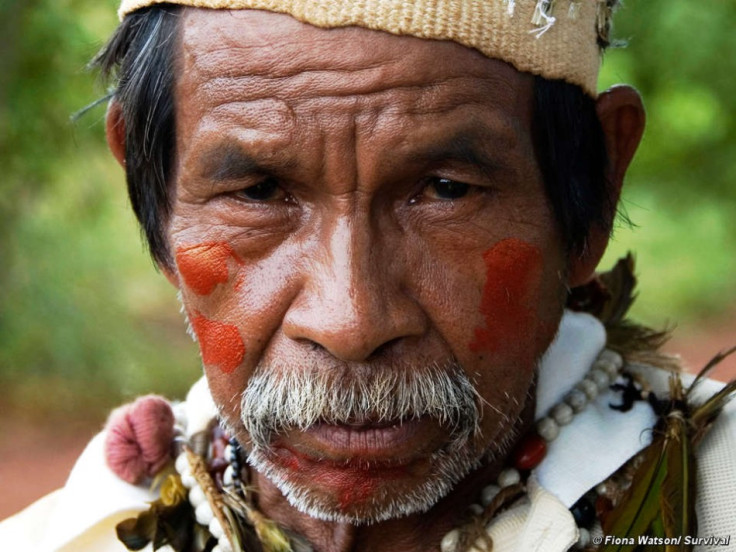Brazil Oil Giant Raizen Gives Up Controversial Sugar Cane Plans

A biofuels company established by Brazil's oil giant Shell has given up plans for sourcing sugar cane from land allegedly stolen from an indigenous tribe after a vociferous campaign by Indians and Survival International.
Established in the year 2010, Raizen is a joint venture of Shell and Brazilian ethanol giant Cosan to produce biofuel from sugar cane.
However, some of its sugarcane is cultivated on lands declared as indigenous by the ministry of justice. It was only due to sustained campaigning by Survival and pressure from Brazil's public ministry that ultimately led to negotiations between Raizen and FUNAI, Brazil's Indian affairs department.
The breakthrough also sees Raizen vow to consult FUNAI, to avoid further investment or expansion in conflict areas that could be recognised as indigenous land in the future.
Guarani Indians have welcomed the news. Many of the tribe live in appalling conditions, in overcrowded reserves or camped on roadsides after being forced from their land. Particularly, the Valdelice Veron's community in Mato Grosso do Sul state is directly affected. Guaranis living here report that their rivers have been polluted by pesticides used in the plantations.
"We'll be able to drink water from our land again. We'll be able to start afresh," a tribe member told Survival International.
Raizen has acknowledged the sensitive range of issues faced by the Guarani and promises to carry out a "social investment programme focused on the indigenous population".
"We want to use our withdrawal as a good example for other companies to follow. We are committed to respecting indigenous land declared by the Ministry of Justice," Raizen told Survival.
The landmark decision could set a precedent in Brazil, and will see Raizen's buying of sugar cane from land declared as indigenous, "definitely cease" by November 25.
"Raizen's decision is excellent news for the Guarani, who have been left to die on the roadside, and squeezed off their land by sugar cane production. Other companies must follow Raizen's example, and stop bankrolling the theft of Guarani land. It's time the world woke up to the fact that Brazil's biofuel is tainted with Indian blood," Survival's Director Stephen Corry said.
© Copyright IBTimes 2024. All rights reserved.








